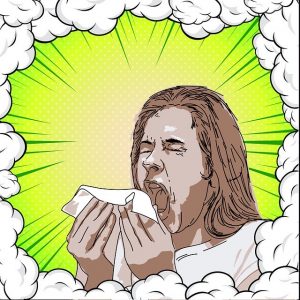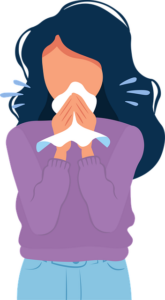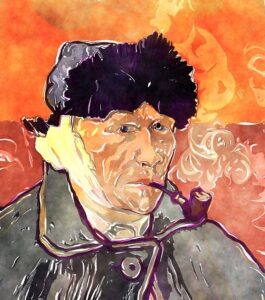Medical vocabulary in Russian
Medical vocabulary in Russian is full of confusing terms with its awkward pronunciation. Have you been puzzled with the words in a medical article or tried to learn a few new words to describe your conditions? It’s extremely important to express yourself correctly once you see your GP. Even if you’re a cyberchondriac and prefer to ask Mr. Google first, you should know what words to type in to find an answer to your question.
What’s the medical vocabulary in Russian? How can you describe minor illnesses and conditions?
Having a headache or feeling under the weather, you should learn a few useful words and expressions to chat with your colleagues at work.
головна́я боль [ galavnaya bol’ ] a headache
боли́т голова́ [ balit galava ] head aches, hurts
У меня́ боли́т голова́.
[ u minya balit galava ]
I have a headache.

головокруже́ние [ galavakruzheniye ] feeling dizzy
У меня́ кру́жится голова́.
[ u minya kruzhitsya galava ]
I feel dizzy.
Minor illnesses and conditions in the Russian language to increase your medical vocabulary
Once you got sick, you could use these words to say what’s going on with you. These are common conditions to mention to your GP in case you’re feeling bad.
ка́шель [ kashel ] a cough
сыпь [ syp’ ] a rash
температу́ра [ timpyeratura ] a temperature
ожо́г [ azhok ] sunburn
рво́та [ rvota ] vomiting
на́сморк [ nasmark ] runny nose, sneezing
кровотече́ние [ kravatichyeniye ] bleeding
боли́т го́рло [ balit gorla ] a sore throat

Let’s have some practice and match the illnesses and conditions with their cause or symptoms so that you were able to understand medical terms in the Russian language.
- У него́ боли́т го́рло. А. Он хо́дит в туале́т о́чень ча́сто.
- У него́ диаре́я. Б. Ему́ пло́хо.
- Он боле́ет. B. Он игра́л с ножо́м и сейча́с идёт кровь с па́льца.
- Он упа́л в о́бморок. Г. У него́ ви́рус.
- Мозо́ль на ноге́. Д. Когда́ мно́го хо́дишь в ма́леньких ту́флях.
- У него́ просту́да. Е. Не мо́жешь ку́шать, потому́ что сло́жно глота́ть.
- Он болеет гриппом. Ё. Кру́жится голова́, темно́ в глаза́х и спишь.
- У него́ кру́жится голова́. Ж. Недомога́ние и на́сморк.
- Он поре́зался. З. Боли́т голова́ и мо́жешь упа́сть.
You can find the answers at the end of the article. Of course, there are other interesting words and expressions in the medical vocabulary.
Let’s spot SOME DIFFERENCES between the Western and Eastern medicine.
- Having a ‘doctor’ (a therapist) instead of GP. First, you should go to your ‘ТЕРАПЕВТ’ (‘доктор’) and then they will prescribe you something or ask you to visit a specialist.
- You can buy antibiotics in any pharmacy WITHOUT A PRESCRIPTION.
- You don’t do blood tests in the Russian language, you ‘ANALYSE YOURSELF’ (pass analysis).
- It’s better TO QUEUE before the door, or you’ll be beaten up by grannies. However, the bravest and the fastest can skip the line.
- Don’t forget to give a CHOCOLATE bar to your doctor if you want to have your things done faster.

Talking about injuries and more serious conditions in Russian
аллерги́ческая реа́кция [ alyrgicheskaya riaktsiya ] allergic reaction
пищево́е отравле́ние [ pyshivoye atravleniye ] food poisoning
высо́кое давле́ние [ vysokaye davlyeniye ] high blood pressure
тра́вма [ travma ] injury
серде́чный при́ступ [ sirdyechnyi prystup ] heart attack
инфекцио́нное заболева́ние [ infectsyonaye zabalivaniye ] an infection
Common treatment for …
ПОРЕ́З? Накле́йте пла́стырь (put a plaster), нанеси́те швы (have stitches)!
БОЛИ́Т ГОЛОВА́? Принима́йте аспири́н, принима́йте обезбо́ливающие (painkillers)!
ИНФЕ́КЦИЯ? Тогда́ принима́йте антибио́тики!
ПОДВЕРНУ́ЛИ НО́ГУ? Приложи́те лёд!
Good job! You’ve done well today. You’ve learnt new vocabulary, some facts about Russian medicine and practised some useful phrases. Don’t forget to check yourself on the exercise you have done.
- Е, 2. А, 3. Б, 4. Ё, 5. Д, 6. Ж, 7. Г, 8. З, 9. В.
Follow Russian for beginners on Facebook to get updated once we post a new article about the Russian language, read a few lines of conversation with your GP in a clinic.